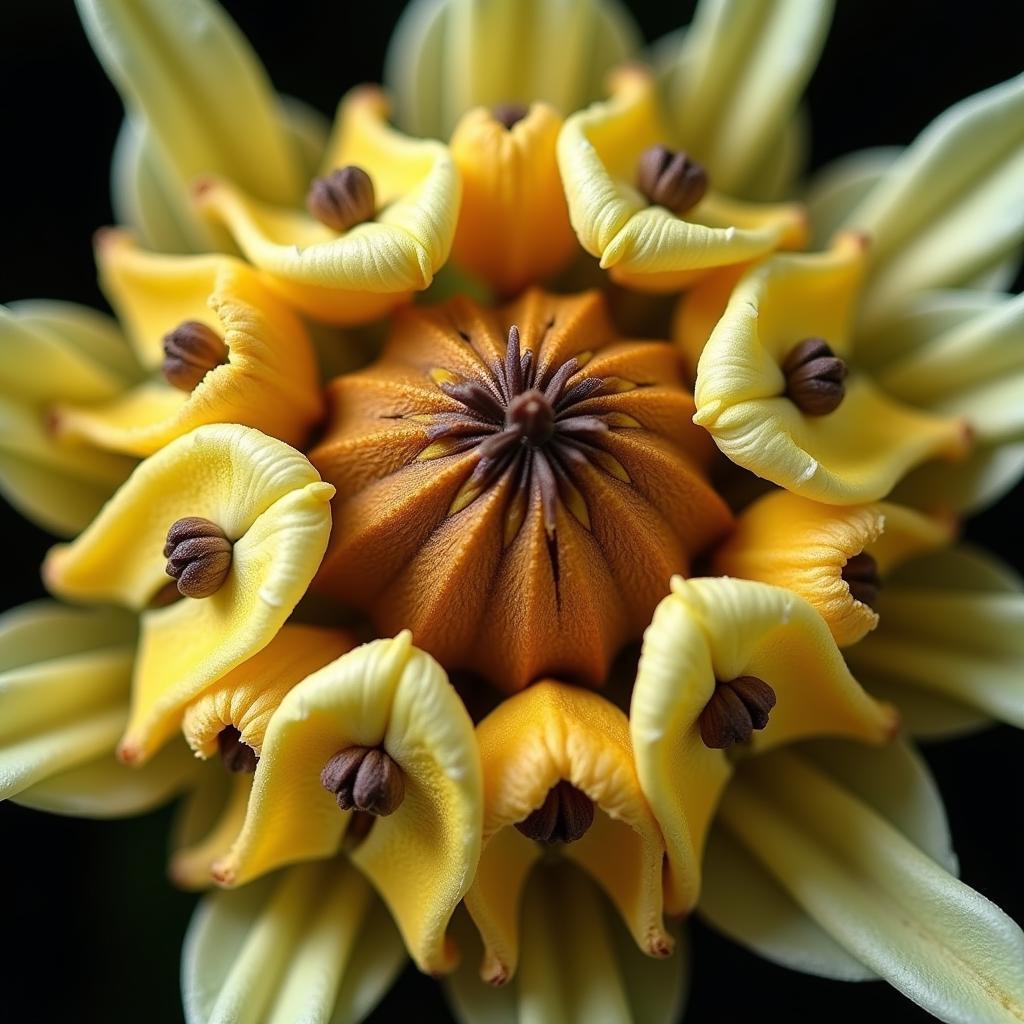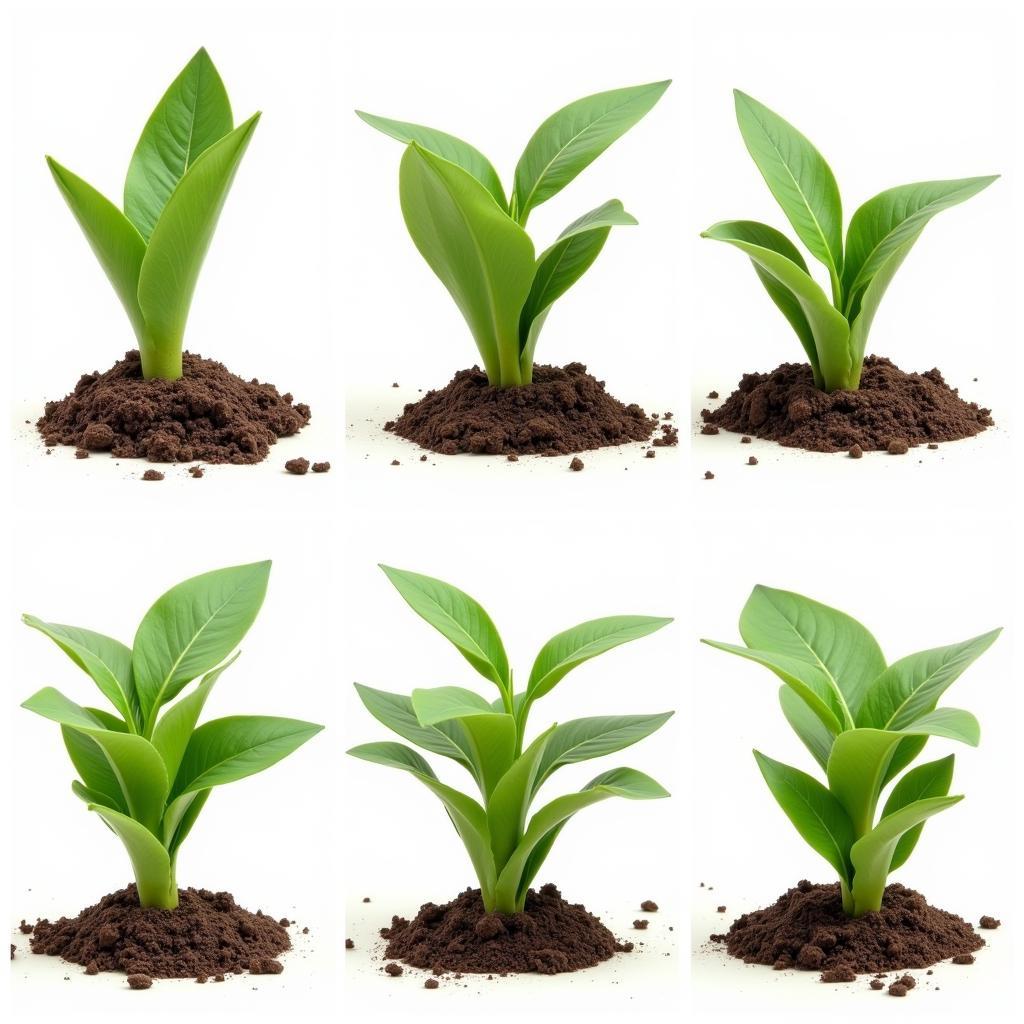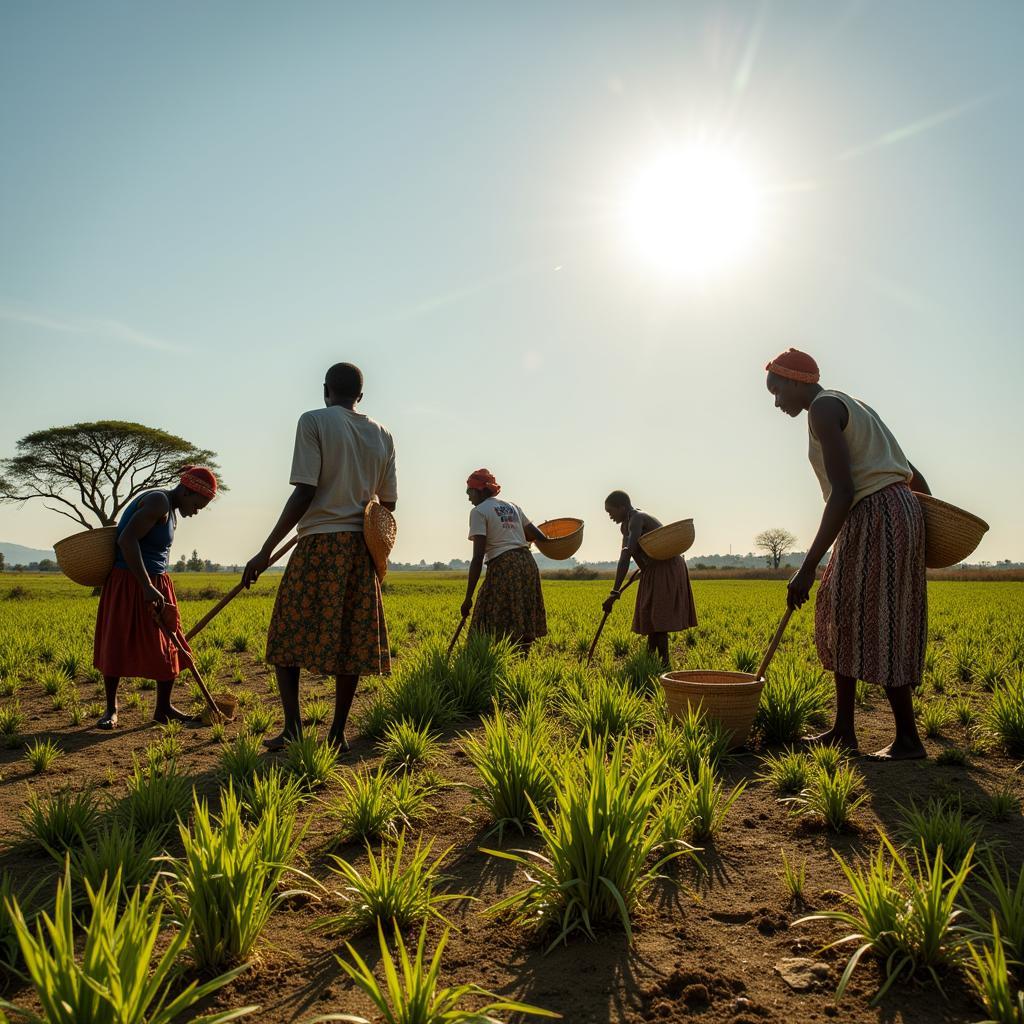Unveiling the Secrets of African Tulip Tree Seeds
The African tulip tree, with its fiery blossoms, is an iconic sight across many parts of the continent. But did you know that within those vibrant flowers lie secrets waiting to be unlocked? We’re diving deep into the world of African Tulip Tree Seeds, exploring their unique characteristics, propagation methods, and the potential they hold.
 Close-up of African tulip tree seeds
Close-up of African tulip tree seeds
A Seed of Contradictions: Beauty and Beast
The African tulip tree (Spathodea campanulata) is a sight to behold. Its large, trumpet-shaped flowers, ranging from crimson to orange, paint a dramatic scene against the African sky. Yet, this beauty harbors a secret – its seeds are considered invasive in some parts of the world.
These seeds, housed within long, brown pods, are flat and winged. The delicate wings, while aesthetically pleasing, are a testament to their effective dispersal mechanism. They catch the wind with ease, allowing the seeds to travel far and wide, sometimes becoming a nuisance in areas where they are not native.
From Seed to Sapling: The Journey of Growth
While the seeds can be aggressive colonizers, understanding their propagation can be beneficial for controlled environments. So, how do you go about germinating these potent seeds?
- Seed Collection: Harvest mature, brown seed pods directly from the tree.
- Seed Preparation: Gently extract the seeds from the pods and allow them to dry for a day or two.
- Sowing: Sow the seeds in a well-draining seed-starting mix, lightly covering them with soil.
- Watering: Keep the soil consistently moist but not waterlogged.
- Sunlight: Provide bright, indirect sunlight for optimal germination.
Within a few weeks, you should see tiny sprouts emerging from the soil, marking the beginning of a new generation of African tulip trees.
 African tulip tree seedling growth stages
African tulip tree seedling growth stages
More Than Meets the Eye: The Potential of the Seeds
Beyond their ornamental value, African tulip tree seeds hold potential in various domains. Research suggests that extracts from the seeds may have medicinal properties, with traditional uses ranging from treating skin ailments to addressing stomach issues. However, it’s crucial to remember that scientific research on these applications is still ongoing.
Furthermore, the tree itself plays a significant role in its ecosystem. Its flowers attract pollinators like bees and birds, contributing to biodiversity. The fallen leaves, rich in nutrients, decompose and enrich the soil, completing the cycle of life.
African Tulip Tree Seeds: A Story of Adaptation and Resilience
The story of the African tulip tree seeds is one of adaptation and resilience. Their ability to thrive in diverse conditions, coupled with their efficient dispersal mechanisms, highlights the power of nature’s design. While their invasive potential requires careful management, their beauty and potential uses make them a fascinating subject of study and a reminder of the interconnectedness of life on Earth.
FAQ
1. Are African tulip tree seeds poisonous?
While the seeds themselves are not considered highly poisonous, the pods and other parts of the tree contain toxins that can be harmful if ingested in large quantities.
2. Can I grow an African tulip tree from seed indoors?
While it’s possible to germinate the seeds indoors, these trees are best suited for outdoor environments due to their size and growth habits.
3. How long does it take for African tulip tree seeds to germinate?
Under optimal conditions, germination typically occurs within 2-4 weeks.
4. Do African tulip trees produce seeds every year?
Yes, mature trees typically produce seed pods annually, usually after the flowering season.
5. Where can I buy African tulip tree seeds?
You can find reputable online seed suppliers or check with local nurseries specializing in exotic plants.
Don’t hesitate to contact us
If you need any support, please contact us at Phone Number: +255768904061, Email: kaka.mag@gmail.com Or visit us at: Mbarali DC Mawindi, Kangaga, Tanzania. We have a 24/7 customer service team.

